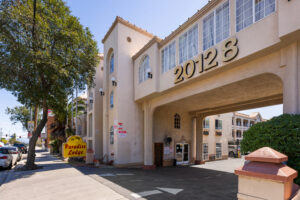Motels Could Be the Right Fit for Opportunity Zones
Motels Could Be the Right Fit for Opportunity Zones
Bisnow
01/31/20
Motels Could Be the Right Fit for Opportunity Zones
By Joseph Pimentel
Budget and value hotels are poised to see a boost in investments via the opportunity zones program, experts told Bisnow last week.
G6 Hospitality Vice President of Franchise Development Jeff Stephenson said that in the past year, he has already heard from more than two dozen investors and current motel owners exploring ways to take advantage of the federal tax program. G6 Hospitality oversees more than 1,400 Motel 6 and Studio 6 extended-stay brands in the U.S. and Canada.
Because many motels and economy hotels are already in areas in lower-income census tracts, and most motel owners are long-term investors, the investment makes sense, Stephenson said.
“There is a great opportunity in some of these opportunity zones,” Stephenson told Bisnow on the floor at the Americas Lodging Investment Summit at the JW Marriott LA Live in downtown Los Angeles. “We can go in and you don’t have to bring the customers in from miles away. They are already here.”
Passed as part of the Tax Cuts and Jobs Act of 2017, the opportunity zone program allows an investor to roll over capital gains into a special fund, which then becomes the investment vehicle used for a business or real estate in a designated low-income community, in exchange for a hefty tax break.
The final set of regulations released in December made it easier for hoteliers to set up in qualified opportunity zones, said OPZ Bernstein Opportunity Zone Fund principal Craig Bernstein.
“The initial legislation expressly prohibited QOZB’s from operating a ‘sin’ business. For example, a bar, country club or golf course,” Bernstein said. “The final regulations state that you can now have a hotel bar, for example, as long as you derive less than 5% of your overall revenue for its operation, and the area occupies less than 5% of the property.”
The program was touted by legislators as a way to pour investments into low-income or historically disadvantaged neighborhoods to stimulate the local economy, boost jobs and uplift residents living in a mostly low-income census tract. There are 8,700 designated opportunity zones, chosen by the governor of each state, and based on the 2010 census.
But since it passed a little more than two years ago, the plan has been beset by controversy, particularly in the hospitality industry. Criticism ranges from accusations of investments that could lead to rapid gentrification in mostly minority neighborhoods, to political favoritism and discrimination.
Critics say that only wealthy investors will benefit as they are the only ones that have capital gains to roll over into the program. Others say investors are pouring money into areas that have already seen a high level of investment.
In Oregon, a Ritz-Carlton qualifies as an opportunity zone project in downtown Portland, a place that has seen a large share of capital flowing into the market. Two Marriott brands on a single 18-story tower are going to rise in an opportunity zone area in Oakland. Examples like these have some members of Congress looking to disqualify some opportunity zones.
“There has been a lot of negative publicity in this program,” DLA Piper partner Jeff Diener said, citing the Ritz-Carlton project as an example.
When it initially passed at the end of 2017, many hoteliers were skeptical of how they could benefit. More than any other real estate asset class, the success of a hotel is predicated on one major thing: location, location, location. With so many of these zones in economically depressed areas, how could hoteliers make this work?
But motels or economy hotels could be the best fit for the program, Stephenson said.
“The customers are already centrally located,” Stephenson said. “Whether it’s the customers or the people that are doing business in that area, families [or] friends, they can afford our hotels rather than [spending] three or four times what some [other] hotels normally charge.”
Bernstein said operators in the hospitality space often forget that they can set up their investments as two separate and distinct opportunity zone businesses around a hotel.
“The first QOZB can be set up specifically to own and operate the physical real estate, and the second QOZB can be set up for the management company that oversees the day-to-day operations of the hotel,” he said.
Atlas Hospitality Group President and CEO Alan Reay said so far he has not seen any motels or economy hotels using the tax break program, at least in California. California’s lack of conformity to the program, including that investors will have to pay state income tax, is a challenge.
“It negates the benefits, so investors will look to other states,” Reay said.
“California is a no-go,” Bernstein added.
Stephenson said California is a great market, with more Motel 6s in the state than anywhere else. Motel 6 also started here more than 50 years ago, he said.
But there is a catch.
“California is a great state if you can work around the high cost and barrier to entry in real estate construction and those types of things,” Stephenson said.
Bernstein said he does expect to see a mix of ground-up hospitality development, ranging from limited-service brands in rural and tertiary markets, to high-end boutique hotels in urban cores.
“At the end of the day though, it all comes down to the deal,” Bernstein said. “The program has the ability to make a good deal great, but will not make a bad deal good.”


